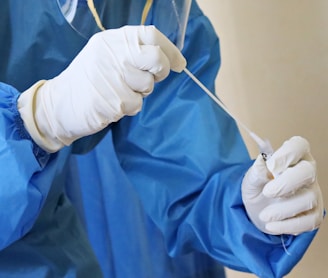Where is DNA extracted from and how is it processed?
Genetic tests used in pharmacogenetics are analyses that seek to identify specific genetic variations that may influence individual drug response. These tests are based on the sequencing or genotyping of certain genes relevant to the metabolism, absorption, distribution or action of drugs.
The collection of the DNA sample for genetic testing can be performed in different ways. The most common way is through a blood sample, obtained by a small venous blood draw. Another option is the collection of a saliva sample using a collection kit containing a buccal swab. In both cases, the samples are sent to a specialized laboratory for analysis.
Once the DNA sample is obtained, genetic analysis is performed. The technique used may vary depending on the laboratory and the specific genes being analyzed. The most common techniques are DNA sequencing and genotyping for single nucleotide polymorphisms (SNPs), which are variations in a single nucleotide of DNA.
The information obtained from genetic testing can provide details about genetic variants present in genes of interest related to pharmacogenetics. These results can help predict an individual's response to a specific drug. Some of the genes commonly analyzed in pharmacogenetics include CYP2D6, CYP2C19, CYP2C9 and VKORC1, among others.
The interpretation of genetic test results in pharmacogenetics can be complex and is usually performed by specialized professionals. The results can be classified into different categories that indicate how an individual may respond to a particular drug. These categories may include "rapid metabolizer," "poor metabolizer," or "risk variant carrier," among others.
Based on these results, physicians and pharmacists can make more informed decisions about drug selection, appropriate dosing and prevention of adverse reactions. Genetic information obtained through pharmacogenetics testing is used to guide personalized medicine, optimize treatments, and improve the safety and efficacy of drugs for each individual.
Importantly, interpretation of genetic results in the context of pharmacogenetics requires specialized knowledge and should be performed by healthcare professionals trained in medical genetics and clinical pharmacology.
If you have any questions, ask whatever you want!




